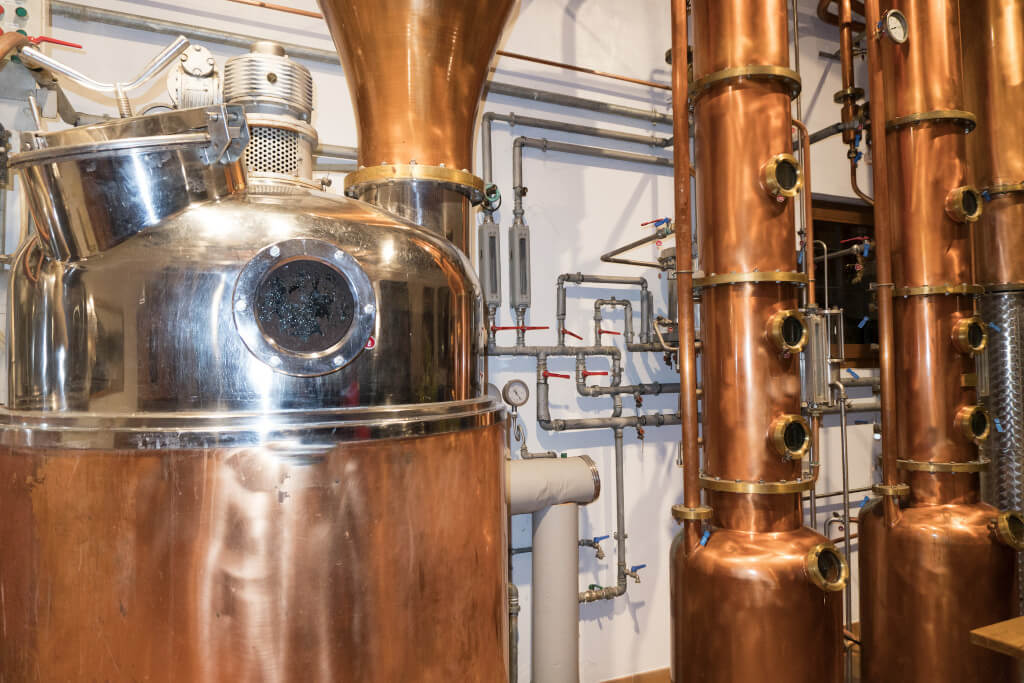Many attribute the smoothness and complexity of Irish Whiskey on your palate to the triple distillation process, a method prevalent in many Irish distilleries. But does this technique truly define the essence of Irish whiskey?
For the uninitiated, distillation is the act of heating a liquid to create vapor and then cooling that vapor to create a liquid. It’s the very core of whiskey production. While many Scotch whiskies undergo double distillation, the Irish are renowned for distilling three times. But why?
1. The Historical Context
How did this refined process of triple distillation, now synonymous with many Irish brands, come to be? A closer look at Ireland’s distilling timeline offers clarity.
Monks and the Art of Distillation
It is widely accepted among historians that distillation techniques were introduced to Ireland by missionary monks around the 6th century. While their primary goal was producing medicinal elixirs, these dedicated men soon realized that the distillation process could be applied to fermented grain mash.
Distillation Evolution: From One to Three
The earliest distillation methods were rudimentary. As techniques evolved, Irish distillers recognized that by repeating the distillation process, the spirit’s purity increased while simultaneously reducing impurities. Historical records from the 18th century indicate that Irish distillers were refining their spirits more frequently than their counterparts in Scotland. The decision wasn’t merely scientific; it was also a matter of taste. Triple distillation produced a whiskey that was notably smoother and more delicate, which suited the palates of the Irish populace.
Economic Influences
The 18th and 19th centuries saw a boom in whiskey production. Ireland was home to some of the world’s most significant distilleries. With scale came the need for consistency. Distilleries like Jameson, founded in 1780, prioritized the triple distillation process, and given their influence in the market, many followed suit.
Distilling and Legislation
In 1880, the Irish Whiskey Act was passed, laying down parameters for what could be legally termed ‘whiskey’. While the act didn’t mandate triple distillation, it established a baseline for production standards. Around this time, the majority of Irish distilleries were already favoring the triple distillation method, cementing its association with Irish whiskey.
Geographical Factors
Ireland’s geography played an indirect role. The country’s abundance of clear, soft water complemented the triple distillation process. Regions like Cork and Dublin, with their easy access to clean water sources, became hubs of whiskey production, and the mellow character of their spirits became sought after.
A ledger from Bow Street Distillery in 1835 mentions a visitor from Scotland, keen on understanding the “Irish method” of distillation. This subtle nod emphasizes that Ireland’s triple distillation process was distinctive enough to pique international interest.
2. The Science Behind the Smoothness
Triple distilling, by its nature, increases the alcohol content but also removes more impurities. If you’ve ever wondered why your Irish whiskey lacks the heavy, peaty flavor often found in Scotch, you can credit the extra distillation for that. The process also allows for a more pronounced expression of the lighter, fruitier notes.
3. But Is It Exclusive to Irish Whiskey?
While many Irish whiskeys boast the triple-distilled tag, it’s not exclusive. Billy Leighton, the Master Blender at Redbreast, once remarked, “Triple distillation is a significant part of our process, but it’s not what wholly defines us.” There are, in fact, several Irish whiskeys that are only distilled twice. And conversely, there are Scotches, albeit rare, that undergo the triple process.
4. The Voices of the Distillers
Mark Reynier, Waterford Distillery: Mark believes that while triple distillation is an integral part of the Irish whiskey narrative, the barley, terroir, and maturation equally contribute to the final flavor profile. To him, it’s a combination of factors that makes Irish whiskey stand out.
- Carol Quinn, Archivist at Irish Distillers: Carol has always emphasized the importance of ingredients and water sources. While she acknowledges the role of triple distillation in shaping the whiskey’s character, she’s also quick to note the uniqueness of the pot stills and the grain varieties used.
- Darryl McNally, Master Distiller at Dublin Liberties Distillery: A staunch advocate for innovation, Darryl believes that while tradition is essential, experimentation should not be stifled. He feels the future of Irish whiskey lies in diversifying the distillation processes and experimenting with different grains and casks.
5. A Glimpse into the Global Perception
For a whiskey lover in the USA, where bourbon (usually distilled just once) is king, the triple-distilled Irish whiskey stands out as a smoother alternative. The additional distillation gives it a refined edge, making it more approachable for those new to the whiskey world. In Europe, where Scotch with its double distillation process holds a strong footing, Irish whiskey offers a fruitier, less intense alternative.
6. The Other Side of the Coin
While triple distillation offers smoothness, some critics argue that it might strip away some flavors, leading to a less complex spirit. They argue that it’s the interaction with the oak barrels during maturation that truly defines the depth and character of the whiskey.
7. The Process Beyond Distillation
Your whiskey’s character isn’t just shaped during distillation. Its true essence emerges during maturation. The type of oak, previous contents of the barrel (be it sherry, port, or bourbon), and even the climate play crucial roles. These factors can influence the whiskey just as profoundly, if not more so, than the number of distillations.
Once, at a blind-tasting event in Paris, a panel of whiskey enthusiasts was presented with two samples – one double-distilled and the other triple-distilled. The majority assumed the smoother of the two was triple-distilled. They were mistaken. This little experiment showcased that while distillation plays a role, it’s not the sole determinant of a whiskey’s character.
Your appreciation for Irish whiskey will be all the richer when you understand the depth and breadth of processes and passions that shape each bottle.

